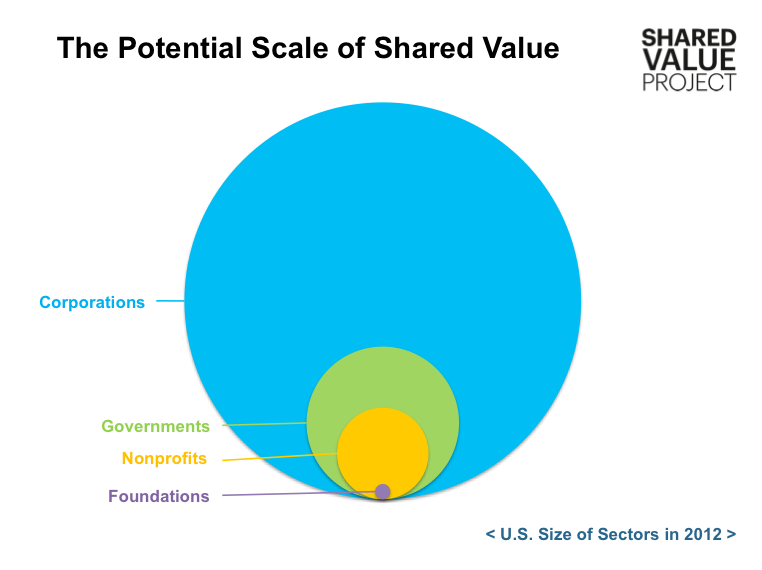There is a common, grass root concern and why we at Shared Value Initiative Hong Kong (SVIHK) are advocating that big business engage and identify the opportunities. We advise building your own posse of champions to start the conversation about CREATING SHARED VALUE. Sow the seed. Whether through employee social /sports associations, corporate volunteer and CSR initiatives, ESG risk assessors, alumnae groups, or shareholder activism; we can all have a voice. Shared Value Initiative Hong Kong is a community of corporates and their stakeholders. We can support you on your journey through advocacy, education workshops, peer sharing, and collaboration platforms. Below we provide some key insights.
Shared Value Definition

Communication is key
1. Engage your stakeholders:
Distrust of capitalism is growing where there has been a disconnect with society. The widening economic discrepancies between haves and have nots and the push for democratisation in Hong Kong both challenge where exactly the responsibility lies. We do not seek retribution or guilt donations instead we celebrate the skill and capabilities that have driven Hong Kong’s economic success over the years and want to share this through visionary leadership: we encourage corporations to utilise their business discipline and resources to drive social innovation.

By applying a social lens to business development opportunities we can steward the allocation of resources to a more empathetic approach. We embrace efficiency and an economic return (profit) but we also want urgent societal needs to be met (purpose). Government is working with us and may choose to purchase services for those unable to pay. This public-private cooperation could provide the minimum market to justify an initial investment. We can help broker partnerships.
2. Align your business with your future markets:
Hong Kong societal issues are complex and not singularly solvable. It will take collective action to make a noticeable difference. Nevertheless, there will be issues that are relatable to your business. Identify them – there may be concepts already proven by social enterprise and NGOs. Mark your starting point and measure your own progress. Start to communicate your intent.
“Money drives change”. Resources will be directed to where value can be created. Capital will also be directed by both positive and negative screening. ESG may be about eliminating external costs but CSV is about positively seeking out new unmet needs anywhere on the value chain – whether supplier or potential customer. A corporate’s strategy will come under increasing scrutiny as responsible investing gains traction. Stay ahead.

3. Reinforce your competitive advantage:
By knowing your core competencies and applying them in areas of great societal significance reinforces your market leadership and raises the barrier to entry for others. It also grows your revenue base and secures your supply chain.
Social good is not enough – Philanthropy can only go so far. Business can provide much greater scale. When all areas of investment (including training, CSR, R&D) reinforce the core proposition then together we will find sustainable societal solutions and make progress.
4. Join the Community.
Learn from our global network. Share strategies for overcoming challenges and keep agitating for change. Each of us deserves to serve a meaningful purpose.

